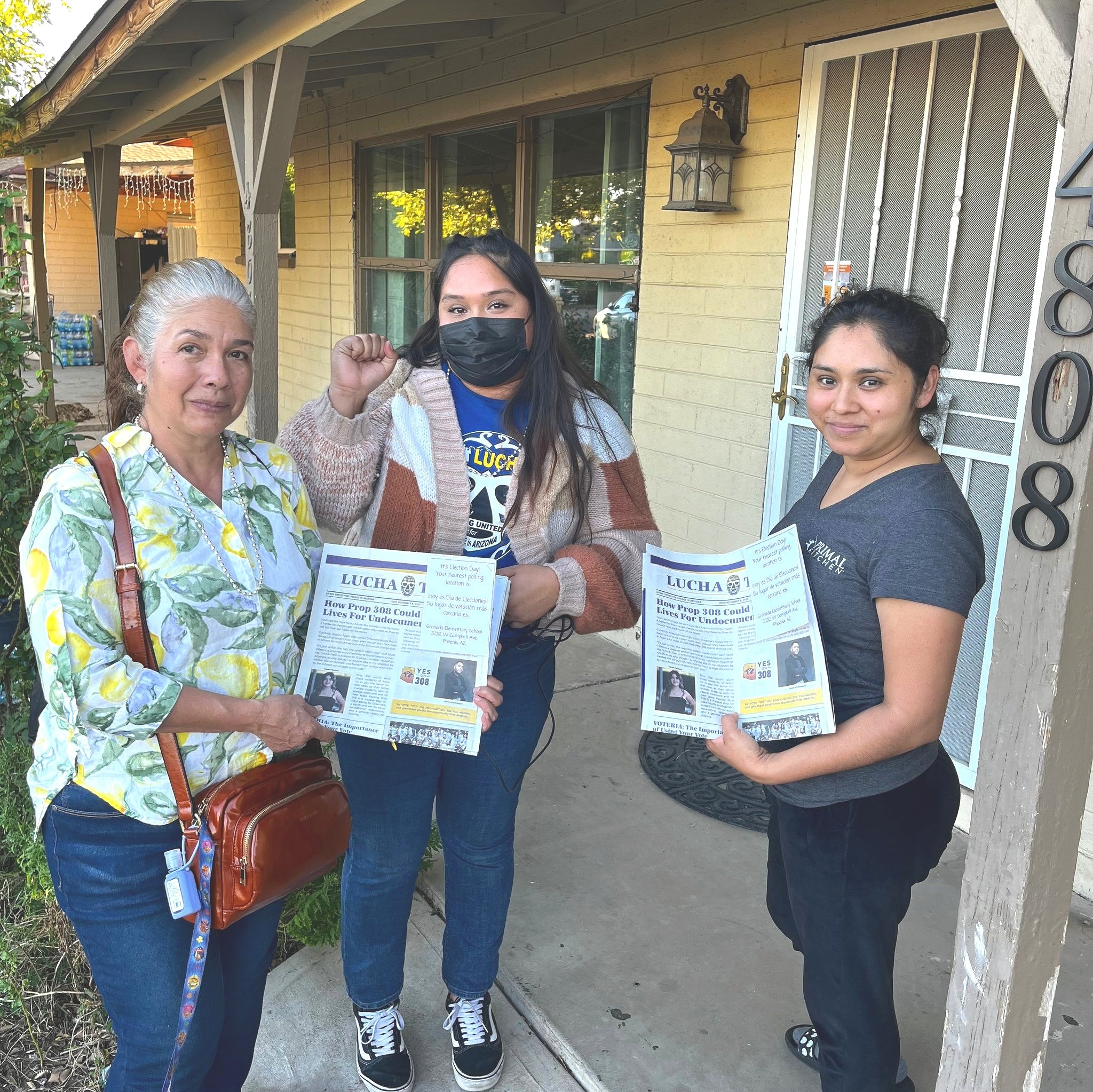Approach
For early investment in the 2026 election, we are prioritizing four states crucial to retaking the US House.
Supporting grassroots groups in key states
Within our target states, we recommend investing in carefully selected grassroots groups with whom we have deep and longstanding relationships. These groups work year-round in their local communities to inspire people to lift up their voices with elected officials and at the ballot box. They are having honest conversations with neighbors about what happened in 2024 and how to move together toward a society that works for all of us. Our partner groups also combat voter suppression by advocating for just policies and alerting people about how to make sure their votes count.
Year-round relational organizing
The work of our partner groups is called relational organizing, which studies demonstrate is a highly effective way to turn out reluctant voters while building lasting electoral strength and leadership in communities that have been underrepresented for too long. Donating to our recommended partner groups is a strategic investment because these groups activate voters who tip close elections up and down the ballot.
Get involved
With Flip the Vote, donors and volunteers work together to strengthen democracy. Anyone who wants to get involved can join Flip the Vote’s efforts by donating to our recommended partner groups or joining our mailing list.



